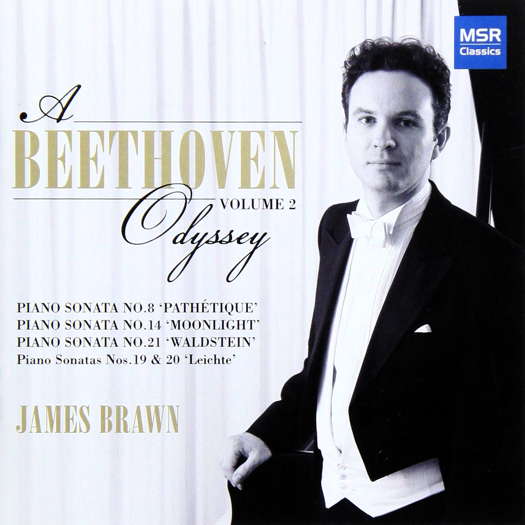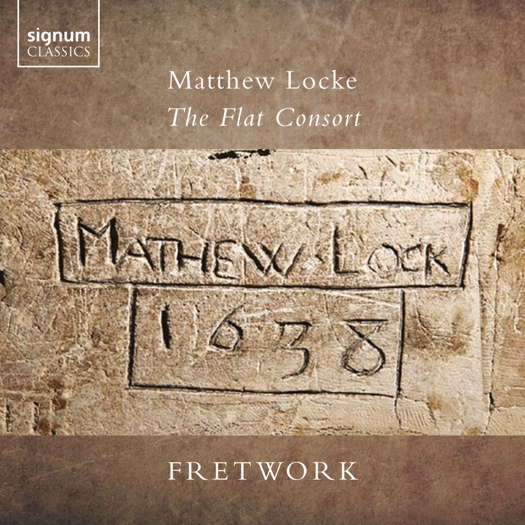- Vec Makropoulos
- J S Bach
- Gouvy
- Paraschiv Oprea
- John Shaw
- Lamentation
- Classical Records
- Under the greenwood tree
 SPONSORED: CD Spotlight. Perfect Indeed - More Beethoven from James Brawn, recommended by Andrew Schartmann.
SPONSORED: CD Spotlight. Perfect Indeed - More Beethoven from James Brawn, recommended by Andrew Schartmann.
All sponsored features >>
 DISCUSSION: John Dante Prevedini leads a discussion about Composers, individuals or collective?, including contributions from David Arditti, Halida Dinova, Robert McCarney and Jane Stanley.
DISCUSSION: John Dante Prevedini leads a discussion about Composers, individuals or collective?, including contributions from David Arditti, Halida Dinova, Robert McCarney and Jane Stanley.

Underground Virtuosity
JOHN DANTE PREVEDINI listens to viol consort suites by Matthew Locke
'Locke's imitative counterpoint shines through with a crispness and clarity ...'
Signum Classics' new release - Matthew Locke: The Flat Consort - is an album of five viol consort suites from the eponymous collection by Locke interspersed with two suites for bass viol duo by the same composer, performed by the viol ensemble Fretwork with guest lutenist David Miller and guest harpsichordist Silas Wollston playing the continuo. The album is available for purchase both in CD and digital format, and the liner notes include illustrative excerpts from Locke's manuscripts along with historical commentary by Fretwork ensemble member Richard Boothby.
Fretwork has been familiar to me since I first encountered their album of Byrd consort songs with Emma Kirkby nearly two decades ago. That disk remains - without exaggeration - among my favorite handful of broader classical recordings to this day, so I was very pleased to see Fretwork continuing their scholarly and artful curation of the viol consort repertoire, here turning their attention to the Commonwealth-era output of Matthew Locke (1621-1677) in commemoration of his quadricentennial. As stated in the liner notes, the specific goal of this release is to 'begin the rehabilitation of Mr Matthew Locke's magnifick [sic] consorts' which 'have rarely been performed or recorded'.
As Boothby indicates, Locke was a Catholic who apparently intended the Flat Consort suites to be performed by himself and friends at private - allegedly 'Papist' - meetings in Hereford; furthermore, the work's dedication 'for my cousin Kemble' seemingly refers to a priest from the family of Locke's wife. Locke would later hold several court positions under Charles II, all while enjoying a parallel career in music for the public theater. His life thus seems to have been one of many contrasting societal roles, and in some ways it resembles the experience of Byrd a few generations earlier. As for the music, Boothby describes Locke's consort and duo suites as representing a stylistic transition between the Jacobean and Restoration-era models within the genre, characterized by the introduction of French influences and a newfound focus on rapidly-shifting states of emotion. Hence, this curatorial effort on Fretwork's part seizes a rare opportunity to showcase pivotal repertoire in the viol ensemble genre that might otherwise have remained quite obscure.
My own impression upon hearing the recordings is that Locke's musical language here is rather angular, cerebral, tempestuous, contrapuntally rigorous and startlingly chromatic - qualities I also remember hearing in excerpts of his incidental theater music several years ago.
Listen — Matthew Locke: Fantazia (The Flat Consort, Suite No 1 in C minor)
(track 3, 0:00-0:30) ℗ 2021 Signum Classics :
It is interesting that the liner notes cite the viol ornamentations compiled by Locke's friend and colleague Christopher Simpson (1659) as a primary source for informing the performances on this release. I say this because - and this is not in the liner notes - the harmonic and contrapuntal structures of Locke's music likewise evoke the practices described in Simpson's Compendium of Practical Musick (1667), whose preface includes an endorsement by Locke himself attesting to the authoritative and comprehensive nature of the treatise as a guide to composition. The harmonic/contrapuntal world demonstrated in both Simpson's theory and Locke's practice is one caught between a receding system of ecclesiastical modes and an emerging one of common-practice tonal keys. Here, older traditions of counterpoint, secondary scale-degree cadences and ficta (chromatic pitch alterations) are still being used as inherited from late Renaissance modal thinking, but the old twelve modes themselves (ie Dorian, Hypodorian, etc) have now been reclassified simply as different possible transpositions of just two: major and minor. These are therefore almost, but not quite, like the major and minor keys most of us know today from the tonal system that would soon come to fully replace modality and dominate the common-practice repertoire of the next two centuries.
Keeping these theoretical and practical contexts in mind may help provide some perspective on the contrapuntally rigorous yet harmonically flexible world of the pieces presented on this album. All of the compositions featured here are suites consisting of four or six short movements based on standardized forms, namely the Sarabande, 'Fantazia', Courante, 'Jigg' and Galliard. These include the five Flat Consort suites, which are respectively in C minor, B-flat major, D minor, B-flat major and A minor.
Listen — Matthew Locke: Fantazia (The Flat Consort, Suite No 4 in B flat major)
(track 31, 1:10-1:40) ℗ 2021 Signum Classics :
Interspersed among these are the bass viol duo suites, one in 'C' and one in 'D'. The major/minor ambiguity of these duo suites refers to the fact that, within each of them, the inner movements alternate between parallel major and minor versions of the same mode.
Listen — Matthew Locke: Fantazia (Duo for 2 Bass Viols in C)
(track 8, 0:00-0:30) ℗ 2021 Signum Classics :
Locke's imitative counterpoint shines through with a crispness and clarity on the entire album, and the choices of continuo realization and general recording setup both serve to bring the music's intricately detailed and tightly woven structure to life.
In conclusion, Matthew Locke: The Flat Consort is an invaluable document which adds a new story of underground virtuosity to the audible history of English instrumental music. Furthermore, the thoughtful selection, sequencing, performance and recording of the repertoire makes for a rich, immersive and invigorating listening experience that truly does justice to Locke's elusive masterworks. I consider it a successful fulfillment of the goals expressed by Fretwork and a fitting tribute to the composer on the four-hundredth anniversary of his birth.
Copyright © 12 January 2022
John Dante Prevedini,
Connecticut, USA

CD INFORMATION - MATTHEW LOCKE: THE FLAT CONSORT
SEVENTEENTH CENTURY MUSIC ARTICLES
RECENT CLASSICAL MUSIC CD REVIEWS


